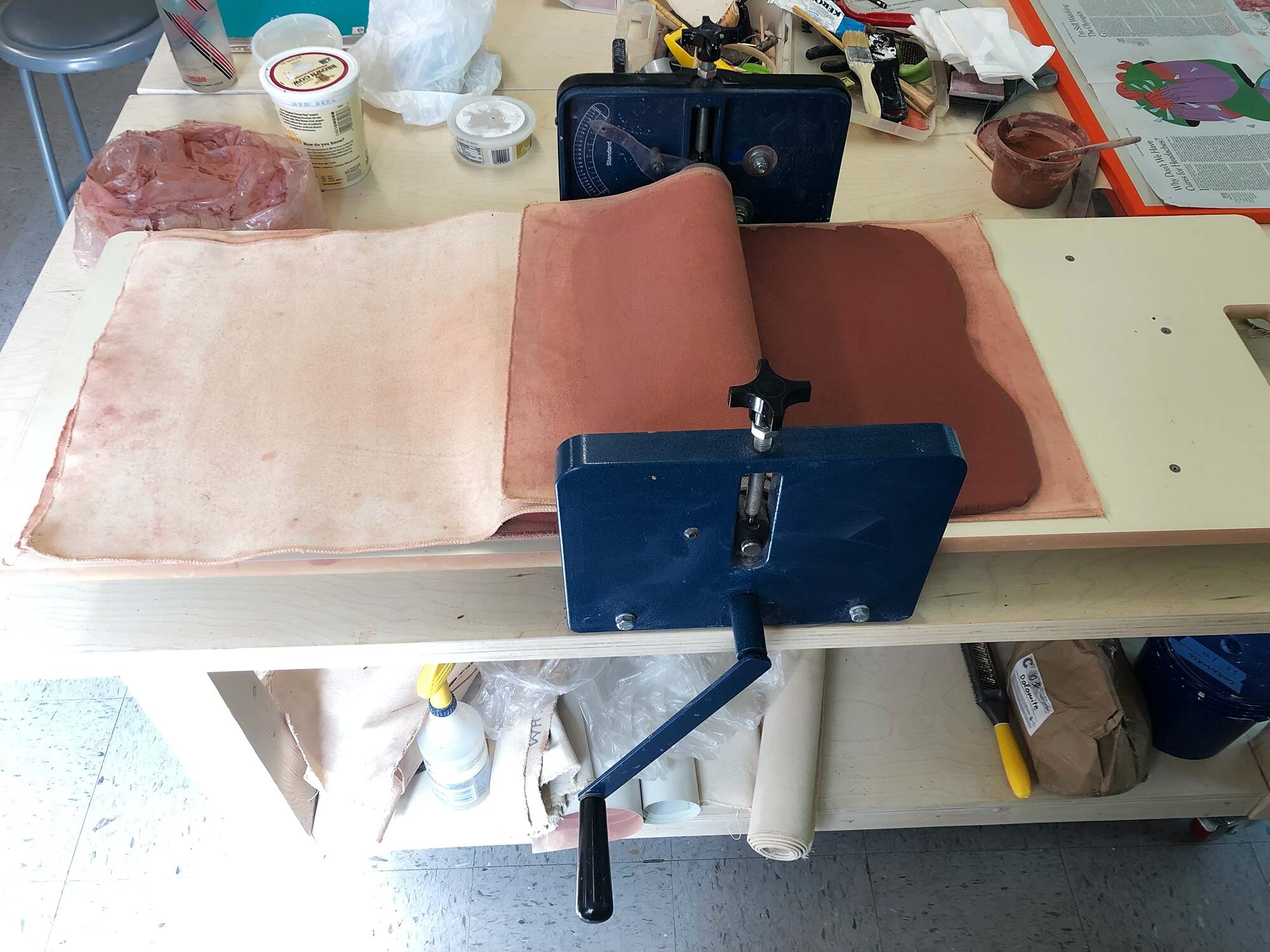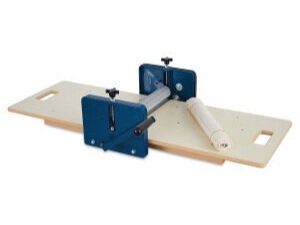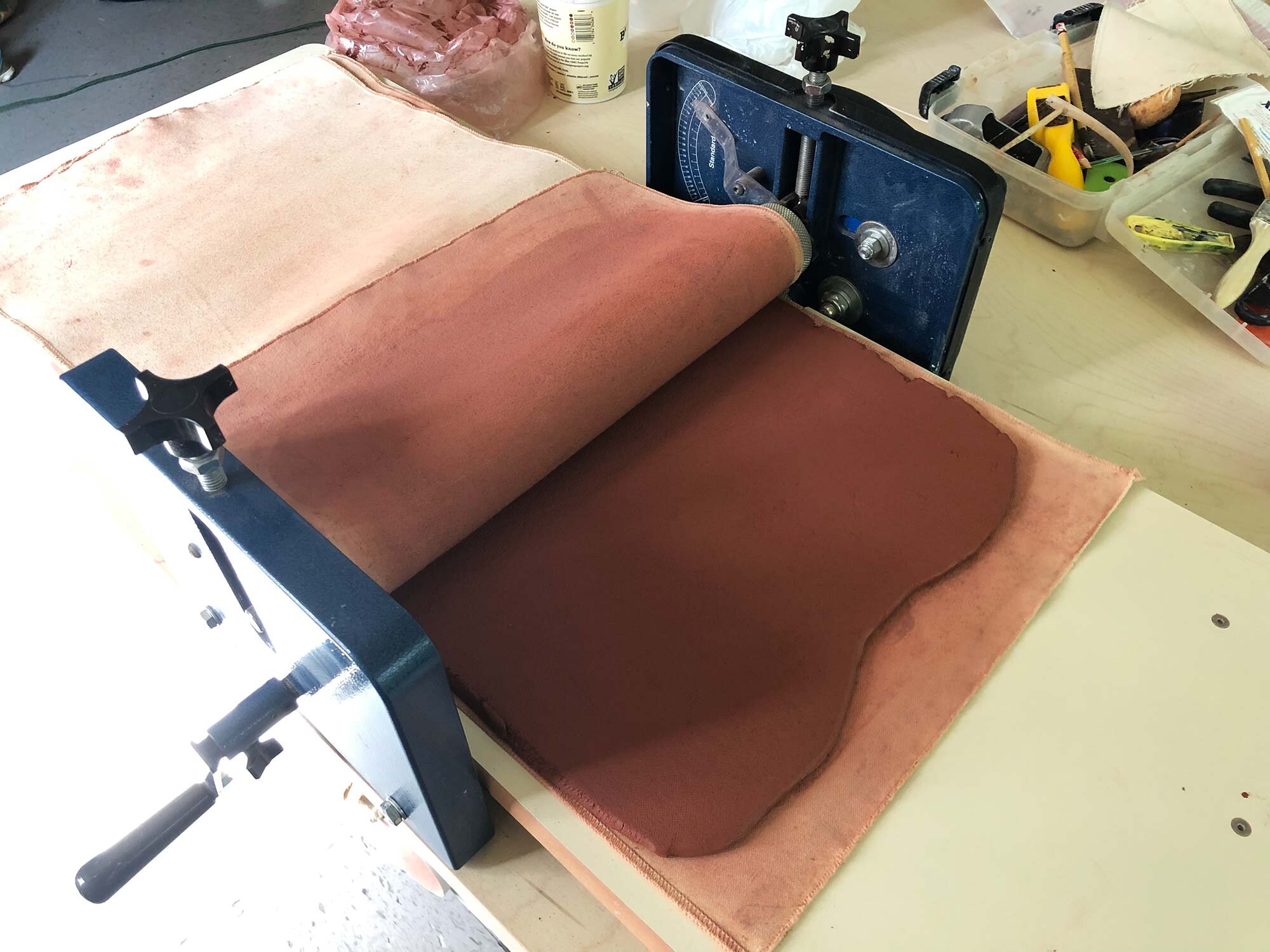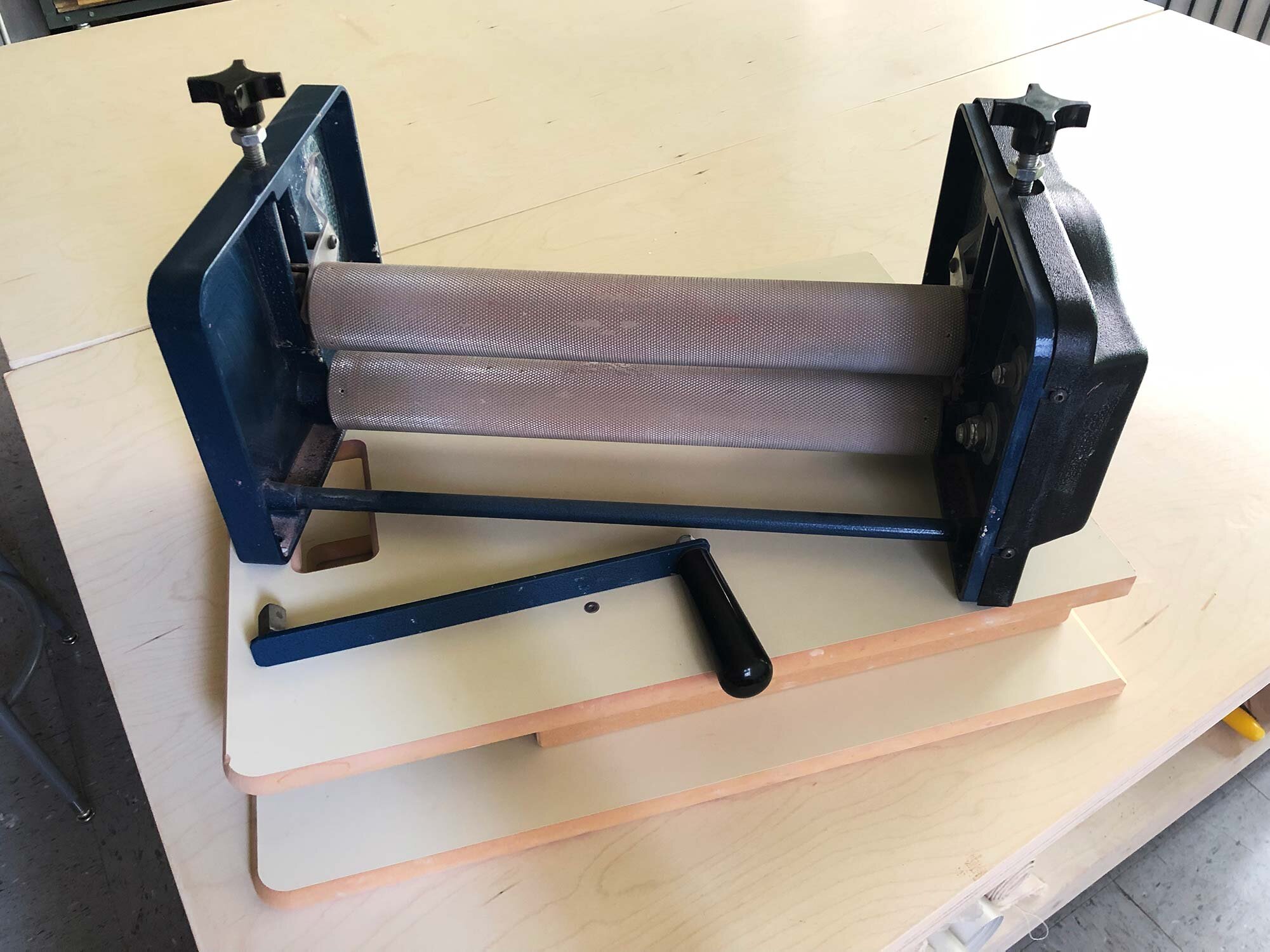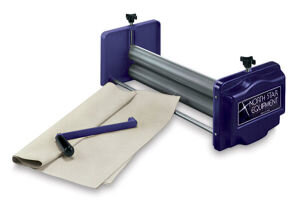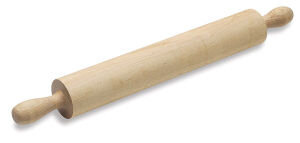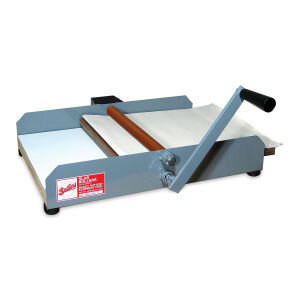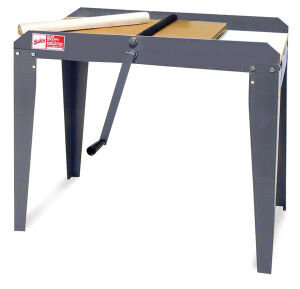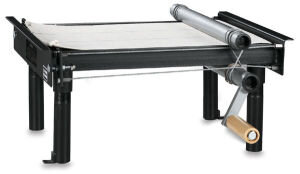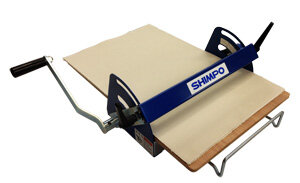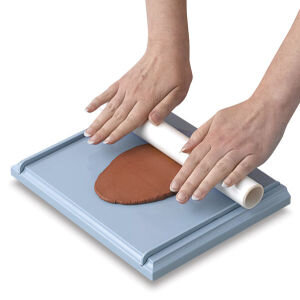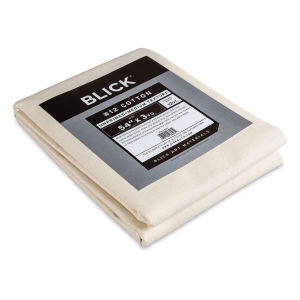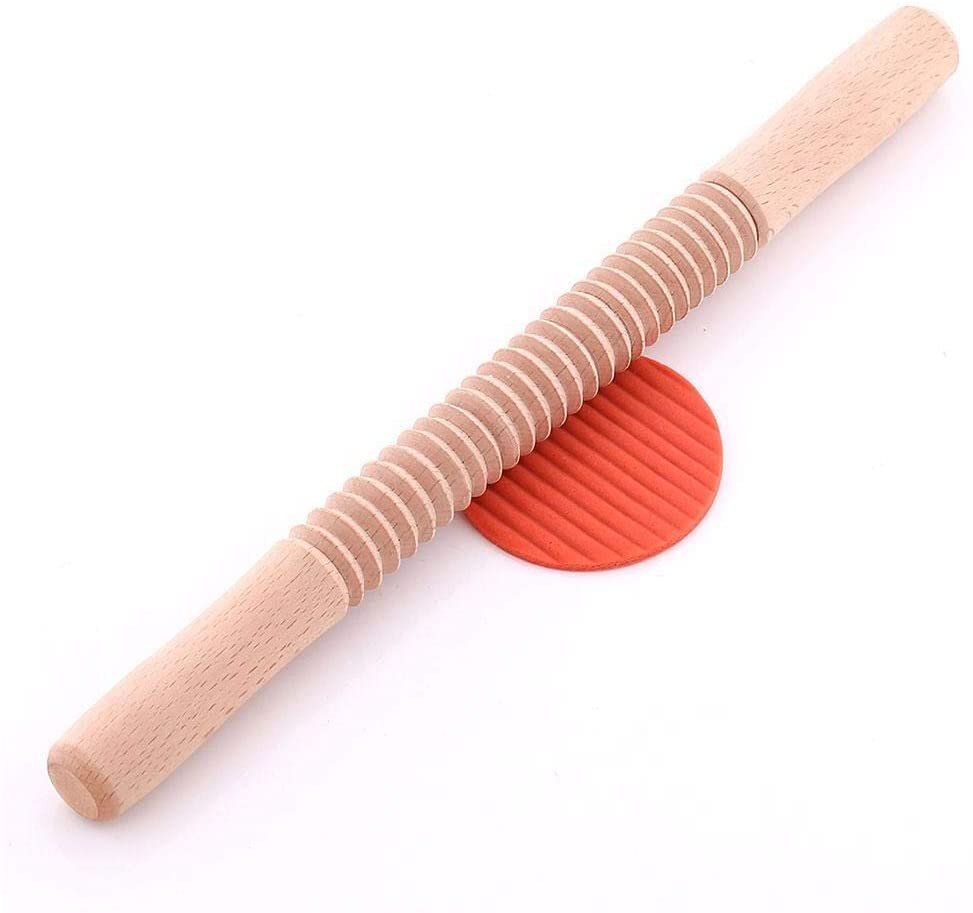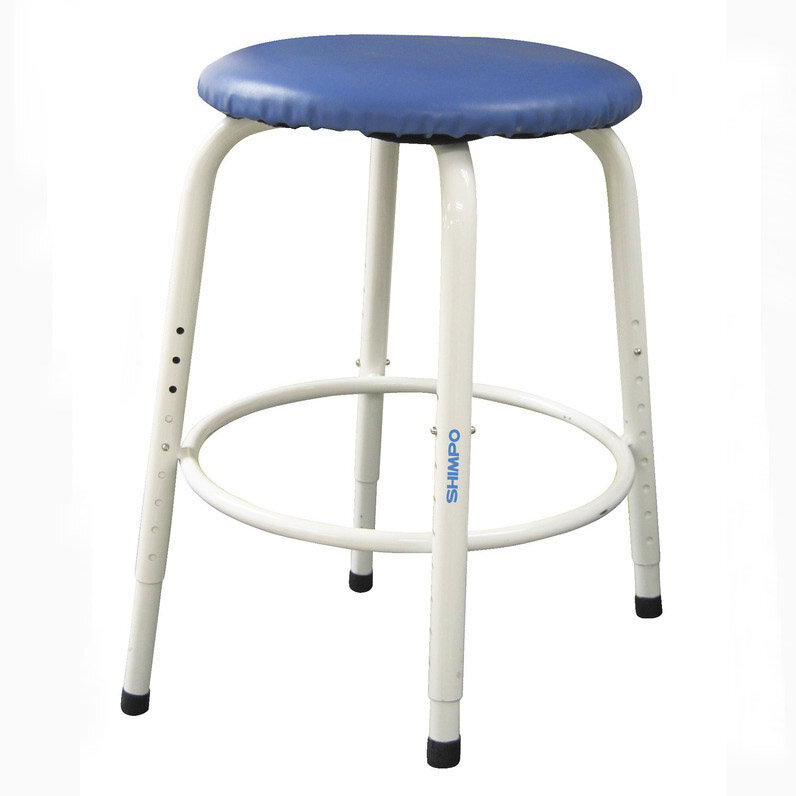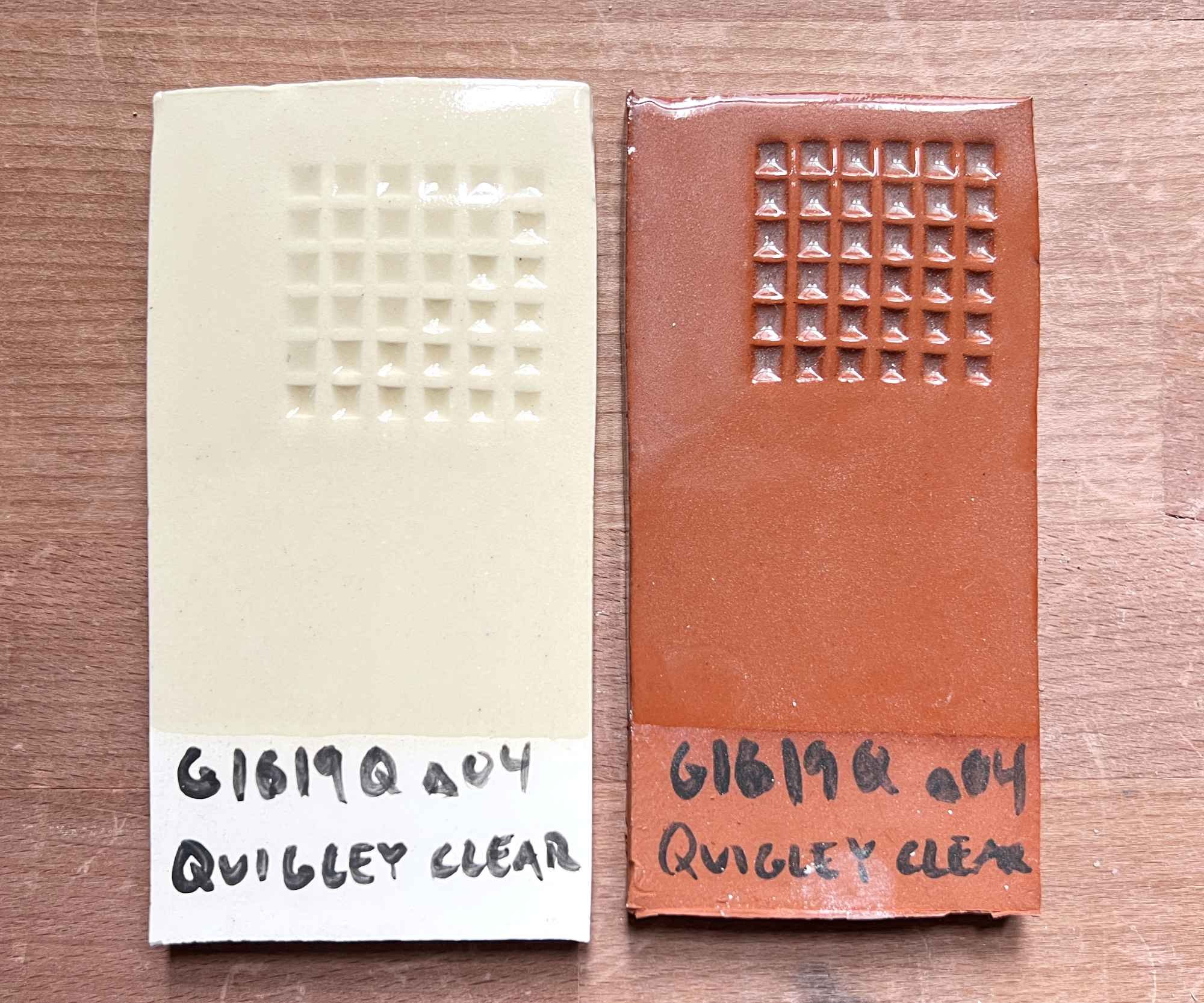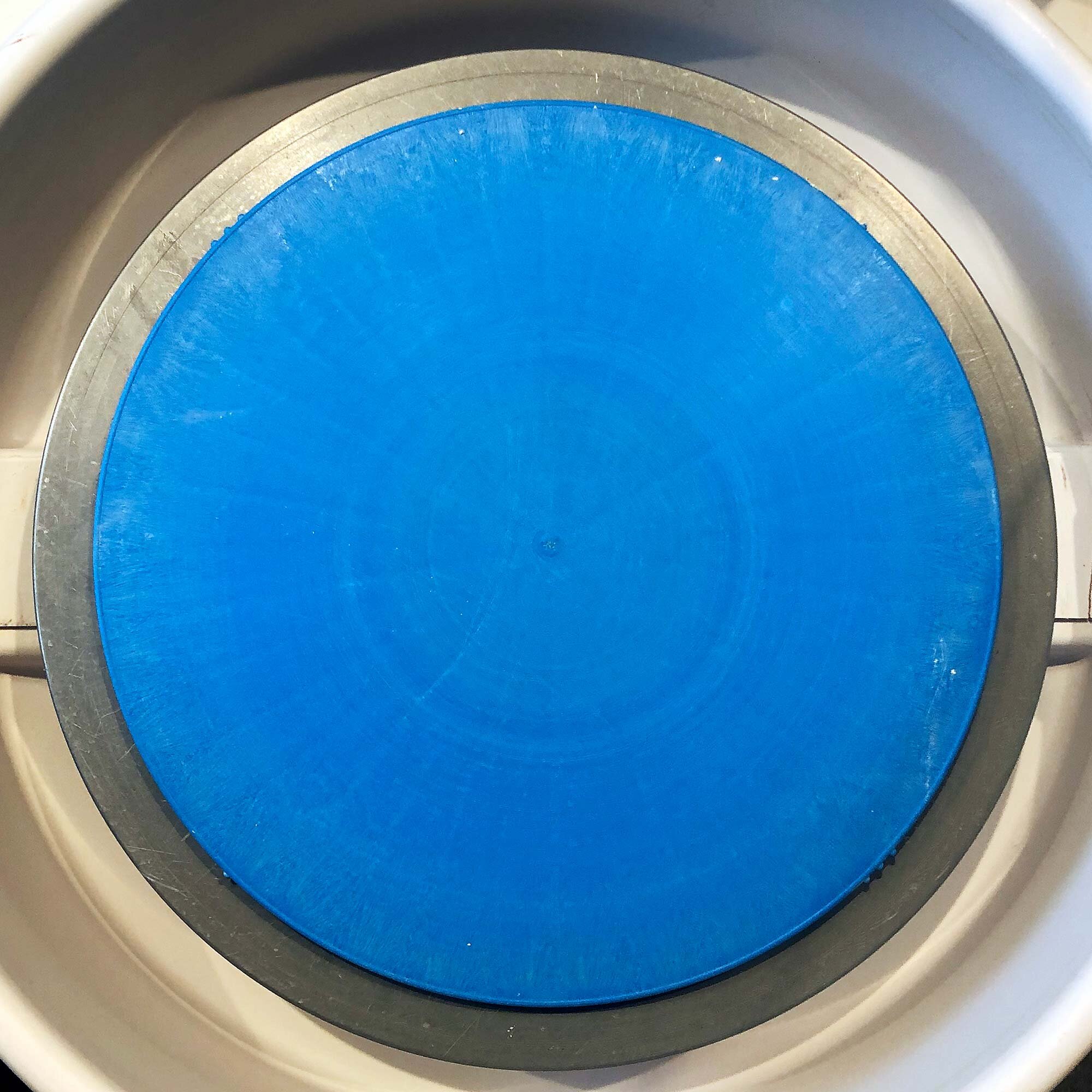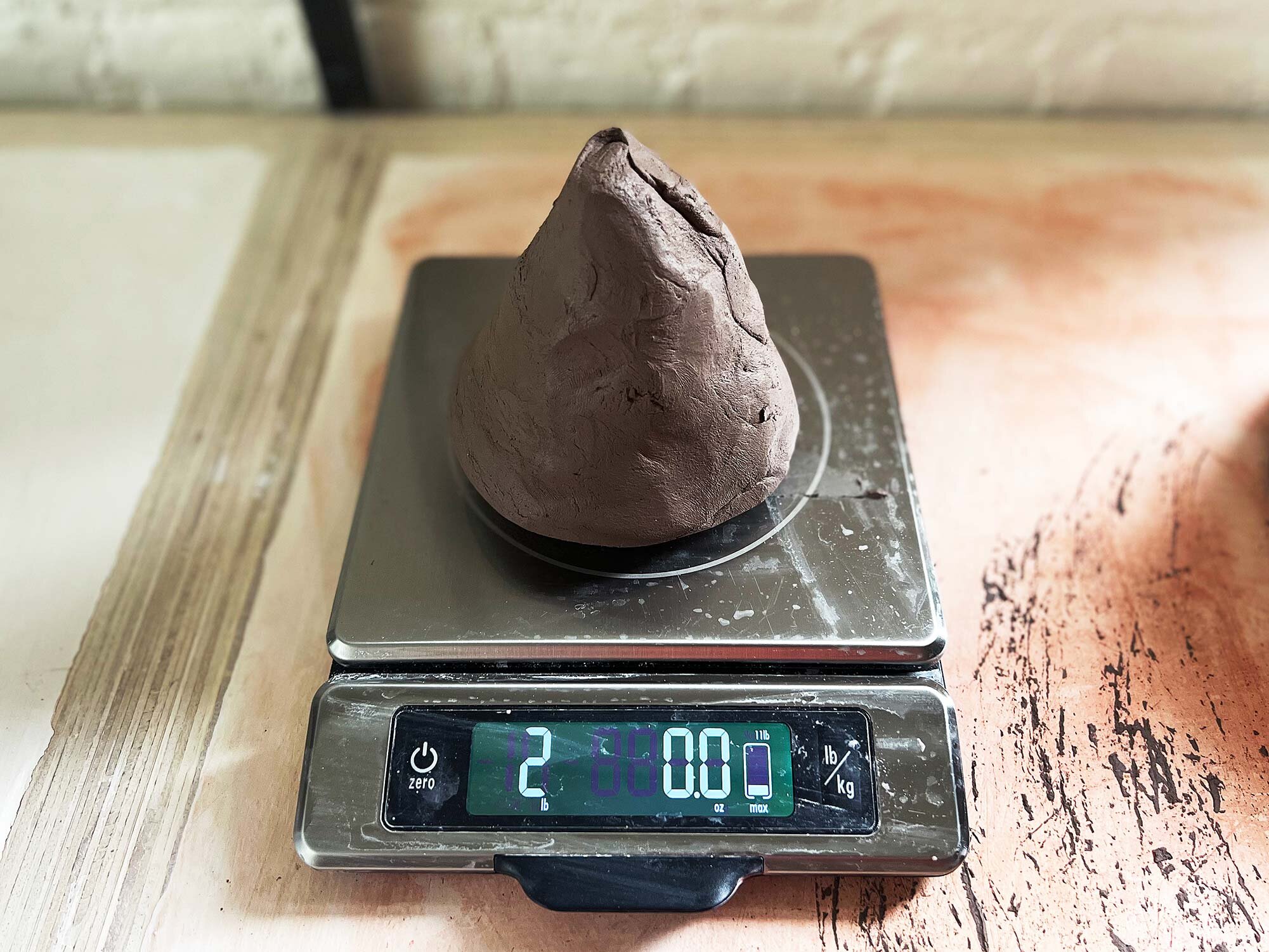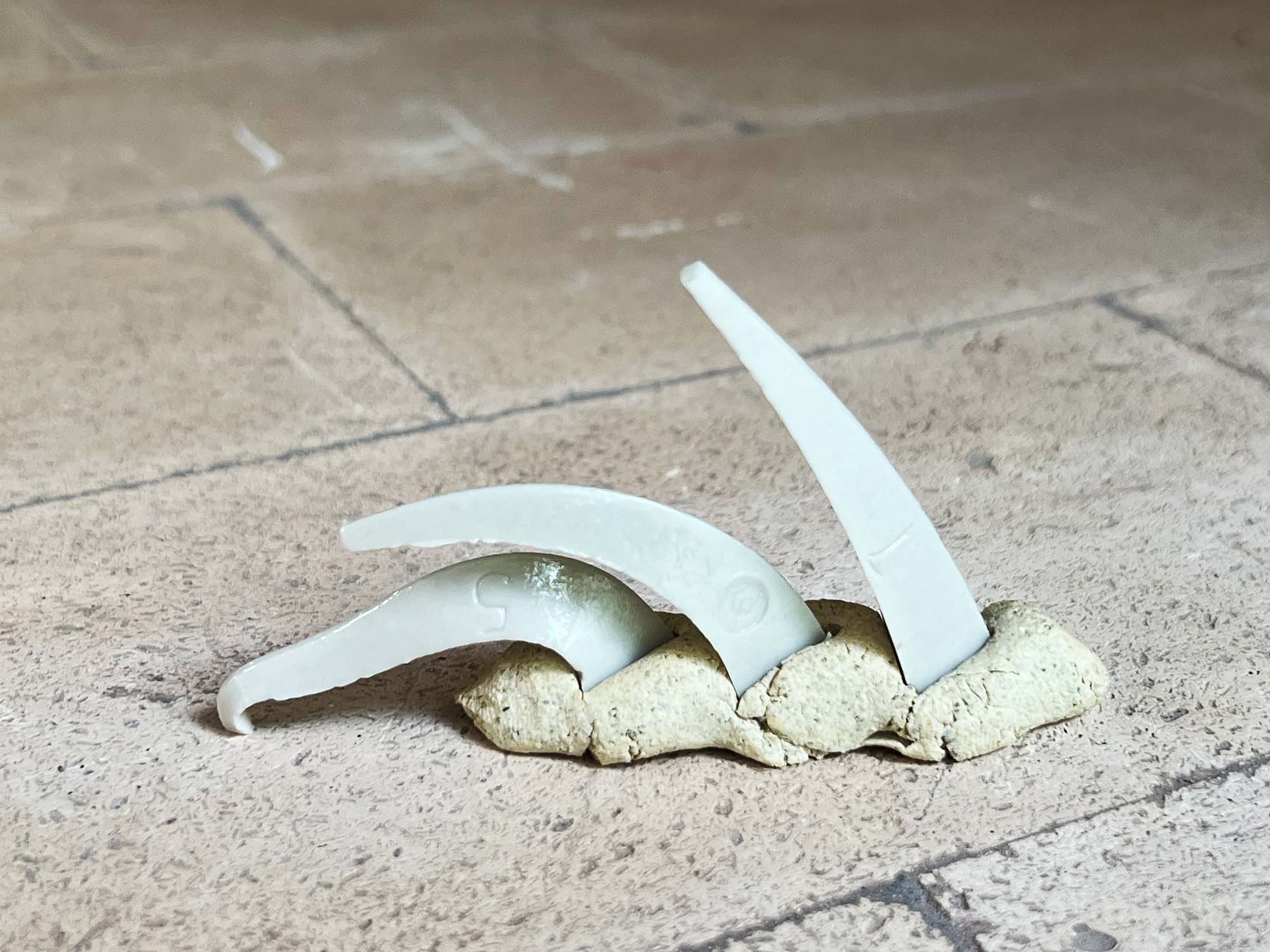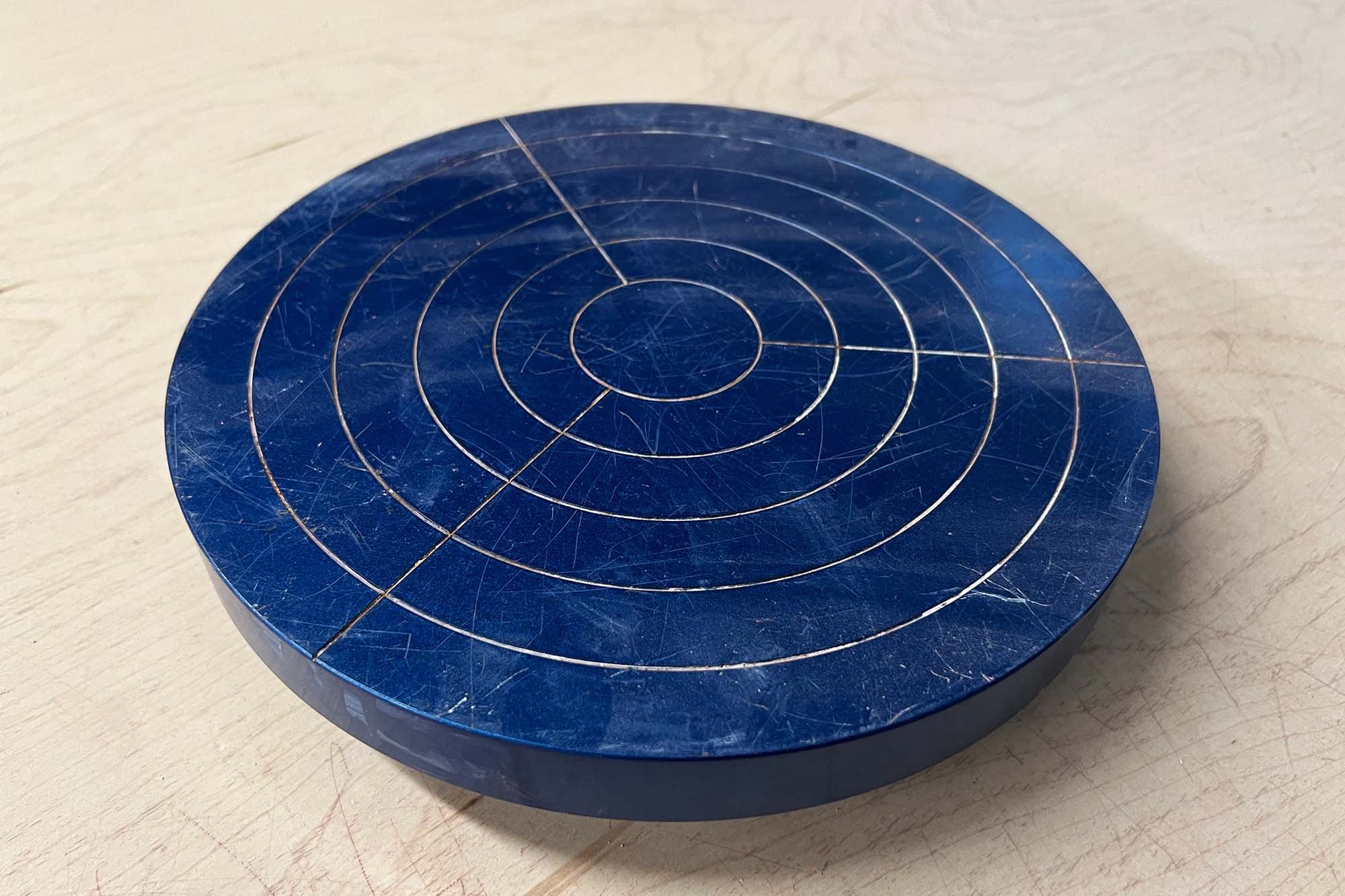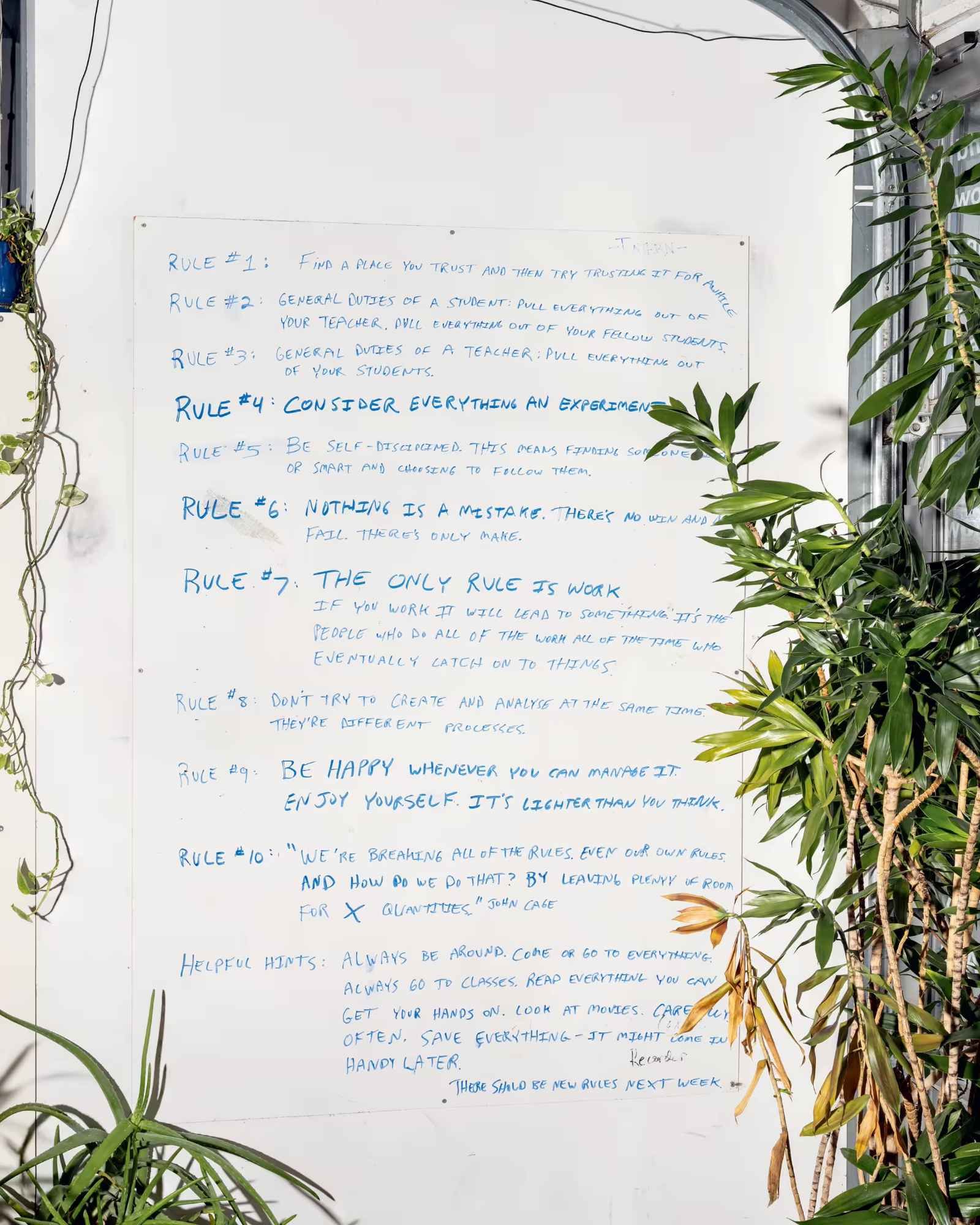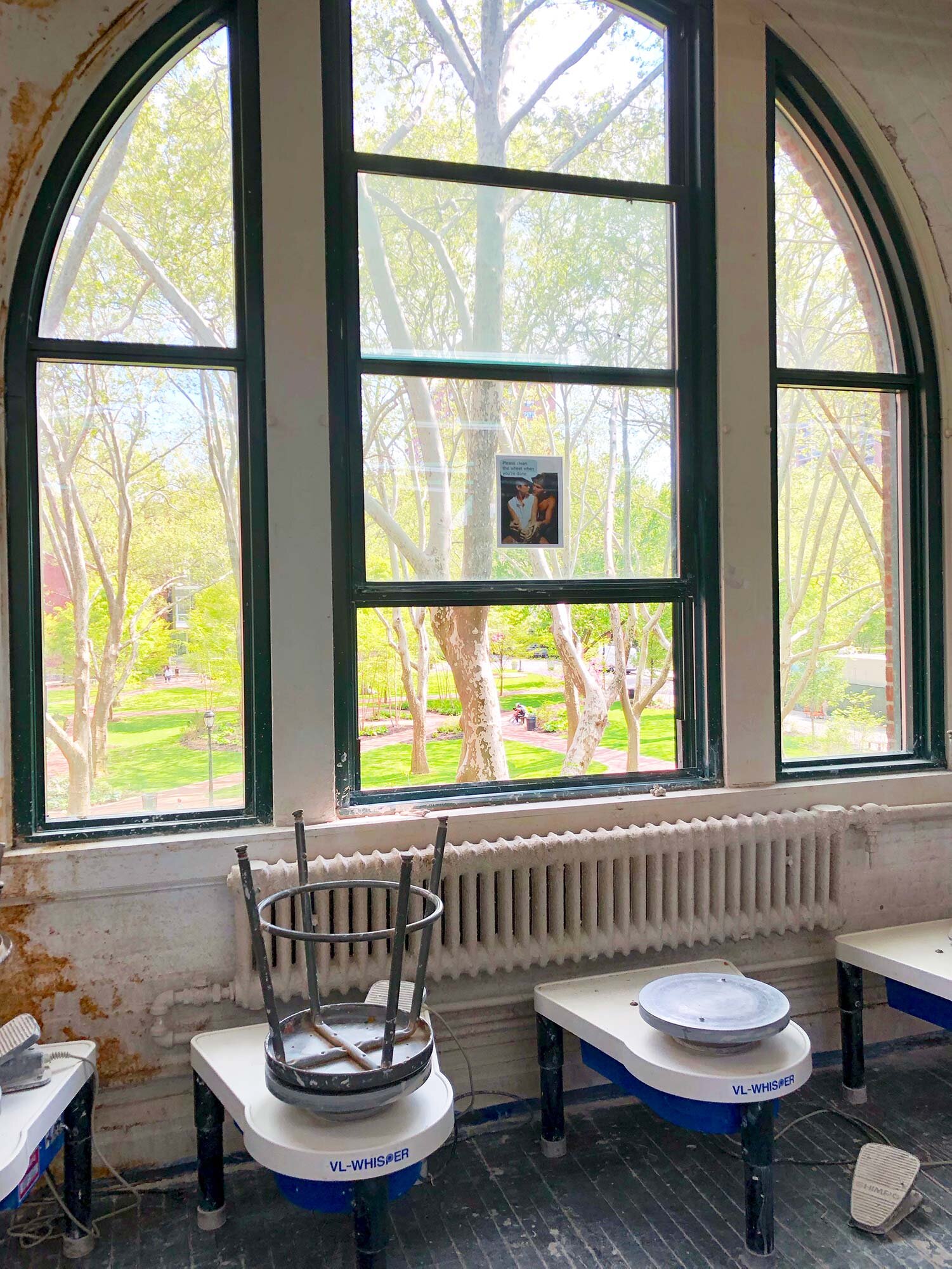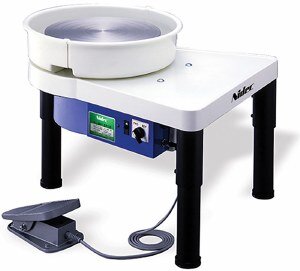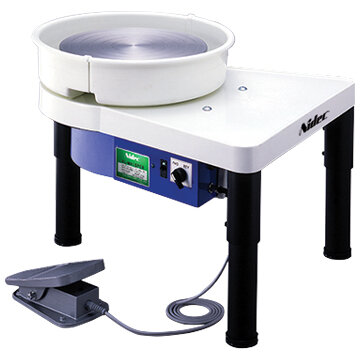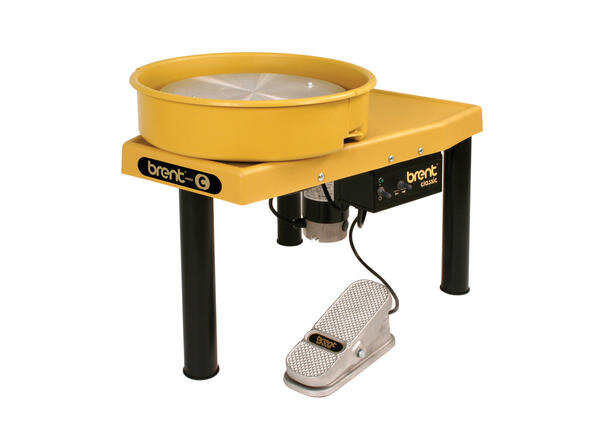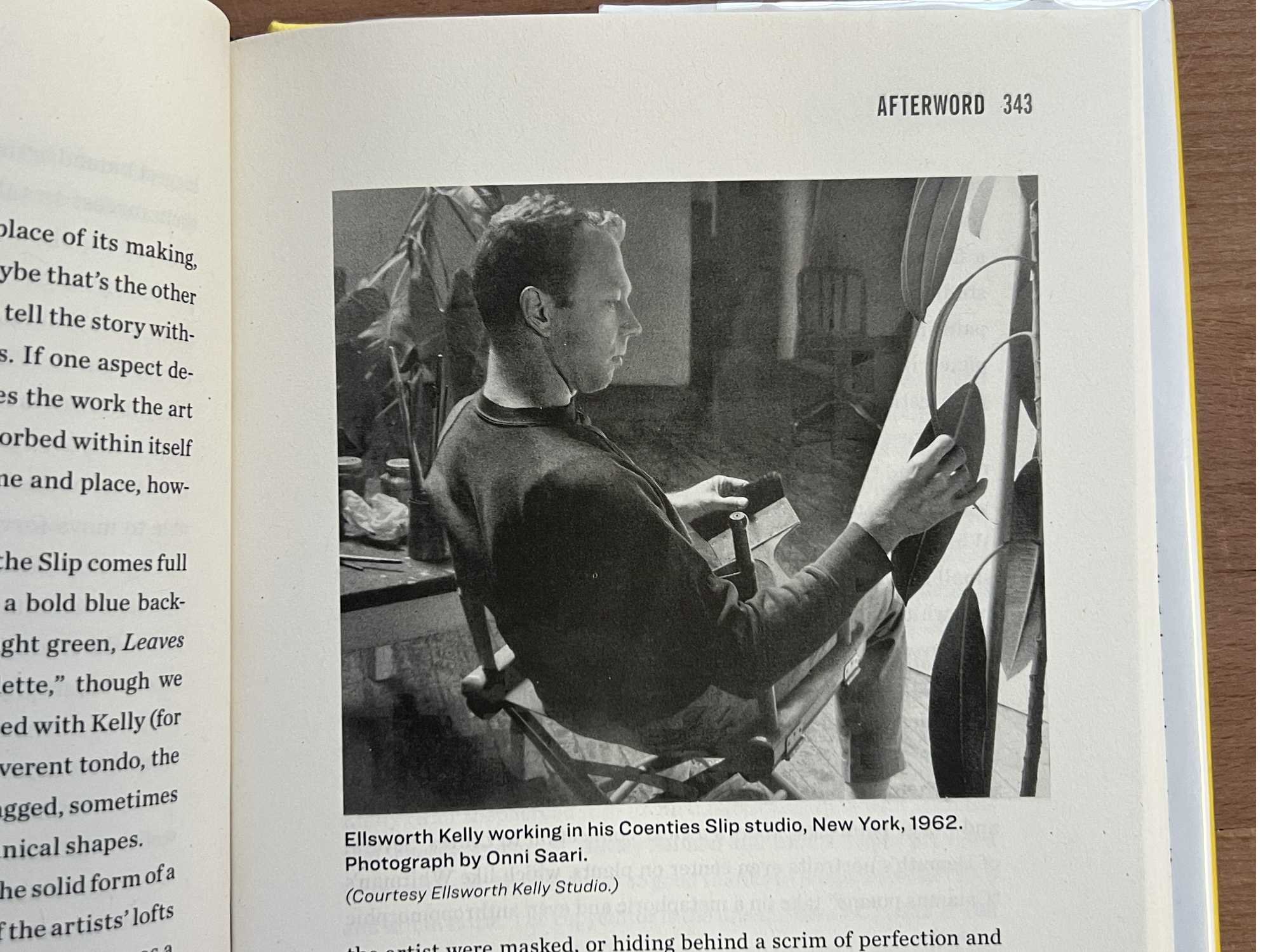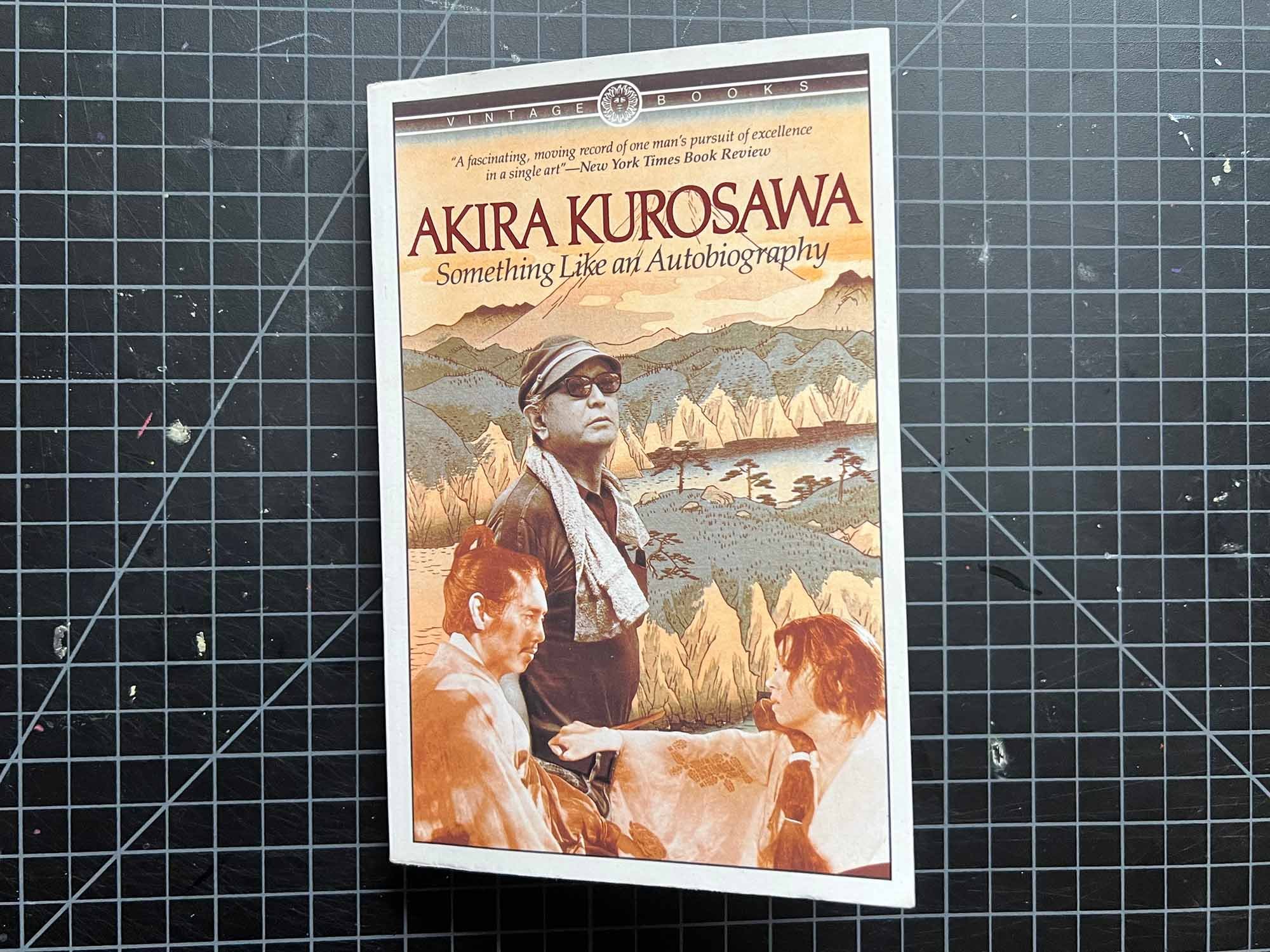The North Star Portaroller is our top pick for a small / portable slab roller.
A slab roller is useful tool in any ceramic studio, and a small or portable roller can make professional-grade slabs while still being able to fit in just about any space. You’ll find that the uniform slab results from a roller will help you with making slab forms, tiles, or any shape where you roll out clay. This guide covers all the small slab rollers on the market.
Reasons to choose a portable slab roller:
Even thickness slabs for tiles and slab building
Save space by not having a dedicated table for slab rolling
Portability and ease of storing when not in use
The 18” Portaroller in action, rolling out a 16 inch wide slab.
TOP PICK: North Star Portaroller
The North Star Portaroller is the top pick for a small slab roller. It features a metal roller housing that is 18 inches wide with two 2.5” rollers! These double rollers will quickly and evenly roll out clay, and your slab is less likely to warp because it is getting even pressure from the top and bottom. The 18 inch wide housing results in a maximum slab width of about 16 inches.
The rollers are 2.5 inches in diameter and feature North Star’s signature “knurled” or diamond-textured surface, which helps grab the canvas or slab mat. The rollers are turned by a detachable hand crank, similar to an old-fashioned wringer washing machine. And the two melamine support tables latch on by gravity (no tools) and stay in place firmly while you are rolling, but can be easily removed for storage.
Pros:
> Double rollers for compressed, even slabs
> Easy to change slab thickness with two knobs
> Great build quality
> Easy to store and move
Cons:
> 16 inch slabs may not be wide enough for some projects
> On the heavy side (but…double rollers are great!)
The Portaroller is 18 inches wide and can make 16” wide slabs up to 2 3/4” thick. The length of the slab can be as long as your canvas but in reality, it’ll probably be about the size of the melamine tabletop, which is approximately 24 inches long on either side of the rollers.
The Portaroller disassembled: Rollers, crank, and two table top pieces. No tools are required for assembly or disassembly.
The three pieces of the Portaroller can be quickly taken apart and put away on a shelf, making these ideal for home studios or small spaces, but with the quality of the North Star rollers, you could also put this roller to use in an academic or studio environment.
The only drawback of the Portaroller is it is somewhat heavy, with a total weight of around 60 pounds. The two table top pieces are sturdy and light, but the roller housing is probably around 30 pounds. North Star advertises this as a roller that teachers can move around and yes, it can be put in a car and taken places (you’ll probably want a Magna Cart to carry it around) but for me, I like the Portaroller because it can be quickly broken down and put on a shelf when not in use.
Overall this is a great slab roller and will be a wonderful tool for most studios. It’s small, but well built and if you need slabs up to 16 inches wide or less, this is the perfect slab roller for your studio.
North Star 18” Portaroller Slab Roller
18 inches wide, detaches to 3 pieces plus a crank for storage
List Price: $1016, typically available for $950
UPGRADE PICK: North Star Polaris Roller
The North Star Polaris slab roller makes 22” wide slabs. Note that some stores sell this roller and table tops separately. Make sure to order both.
The North Star Polaris is the same as the Portaroller in every way, except that it is 24 inches wide and can make a slab that is 22 inches wide. If you have the space, order this roller and the matching table pieces for a larger portable roller that disassembles into three pieces with no tools.
North Star Polaris 24” Slab Roller
The Polaris Roller and matching table tops are sold separately
List Price: $1,350
Typically available for $1,150
BUDGET PICK: Solid Maple Rolling Pin
The 24” solid maple rolling pin is 3 inches in diamter.
A solid maple rolling pin is a must-have for any ceramic studio, even if you have a slab roller. For small things, it’s usually easier to roll by hand. Pair this with a few wooden slats or yard sticks, and you’ve got an adjustable slab rolling system.
A solid rolling pin is better than a rolling pin with bearings or moving parts, because there is nothing to break and it is easy to clean the entire rolling pin with water. Rolling pins come in a variety of sizes but a 24” wide rolling pin is still easy to maneuver but large enough to make really big slabs. At around $32, this is an affordable studio tool that will last forever.
Solid Maple Rolling Pin
24” long, 3” in diameter
$32
Table of Contents
Top Pick: North Star Portaroller
Upgrade Pick: North Star Polaris Roller
Budget Pick: Solid Maple Rolling Pin
Other Small Rollers
Slab Roller Accessories
Summary
Other Small Rollers
In addition to the North Star rollers and a simple rolling pin, there are small rollers made by Bailey, Brent, Shimpo, and AMACO.
The Bailey Minimight 16 is a crank slab roller that can make 16” x 18” slabs up to 3/4” thick.
Bailey Minimight Slab Rollers
Bailey Ceramics makes two small slab rollers, the Minimight II 16 and the Minimight II 22. The models are the same build quality and style: the smaller can make 16” x 18” slabs, while the larger can make 22” x 24” slabs. The 22” model can also be paired with leg extensions, for a standalone small slab roller.
The Bailey Minimight 22 can be used as a table top or with optional legs (as pictured here) and can make slabs up to 22” x 28”.
This is a cheaper and more compact roller than the North Star Portaroller, and it does have two rollers. However, the rollers are much smaller in diameter, so it is harder to roll clay through. Plan to thin your slab considerably before running it through these machines, so as to not stress the rollers and crank. The rollers are also not adjustable, instead different shim thicknesses are used to create slabs ranging from 1/8” to 3/4” thick. It’s not a terrible design, but not as easy as adjusting the knobs found on other rollers.
Overall, this is a simple, quality roller that is cheaper and smaller than the North Star Portaroller, but is harder to use and not as flexible in slab thickness and length. But it’s perfect if you make small slab projects.
Minimight 16 Tabletop roller: weighs 36 lbs and typically retails for around $493
Minimight 22 Tabletop roller: weighs 87 lbs and typically retails for around $525.
Minimight 22 with legs: weighs 103 lbs and typically retails for around $861.
Brent Mini SRC Slab Roller
The Brent Mini SRC Slab Roller is an overbuilt little roller that can make 14” x 15” slabs.
The Brent Mini SRC is a really strange slab roller: it’s basically a scale model of Brent’s much larger slab rollers and it really seems like overkill for a small roller. The Mini SRC is overbuilt and tough, just like all Brent products, and it employs the same moving rollers and wires as other Brent rollers. The roller can make slabs up to 14” x 15”, and is adjustable from 1/8” to 3/4” with a series of shims.
I’ve always found all the Brent slab rollers to be confounding machines and this is no different. For what you get, it is heavy at 63 lbs, hard to adjust, doesn’t make very large slabs, and has the wires that can snap and need to be repaired. I would steer clear, unless you are some kind of masochistic diehard Brent-head.
The Brent Mini SRC weighs 63 lbs and retails for around $1,210.
Nidec Shimpo SRM-1624 Mini Slab Roller
The Nidec Shimpo Mini Slab Roller features an easy-to-adjust sliding top bar and a board that moves through the roller housing.
The Nidec Shimpo SRM-1624 Mini Slab Roller is an interesting entry that is similar in many ways to the Bailey Minimight, but with lighter weight and can make slabs up to 16” wide by 24” long. It features an adjustable top roller and can make slabs up to 1 inch thick, and it has a board and canvas that moves through the bottom of the unit. It weighs just under 38 pounds and measures 19” wide by 28” long. The one piece design makes storing a bit harder, but this is definitely something that could be put away when not in use.
Nidec Shimpo SRM-1624 Mini Slab Roller
List price: $750
Typically available for $640
Activa Slab Roller
The Activa Slab Roller
This is a model of slab roller that seems really ineffective and probably would not make a good addition to your studio. The Activa Slab Roller is a small plastic board with different size rails and a plastic tube for rolling. Clay sticks to plastic so you’ll need to use canvas or corn starch or something with this, and it is quite small, at about 10 x 10.5”. You’d be better served by getting a piece of canvas or slab mat, and a wooden rolling pin. But, if you only do small things or maybe you are looking for something to use with polymer clay, this might be just what you need.
The Activa Slab Roller typically retails for around $36.
Slab Rolling Accessories
Here’s a few things that will help you work with clay slabs in your studio.
Blick #12 unprimed canvas.
12 oz Unprimed Canvas
For slabs, there’s nothing better than unprimed canvas for rolling and moving. With a canvas blanket, you can cut to your desired shape and either hem or leave the edges unhemmed. Canvas can be washed over and over again by hand or in the washing machine. Frequent washing will help keep the dust down, and does soften the material over time. #12 / 12 oz canvas is a great place to start, or go slightly thicker with #10 / 15oz canvas.
There are also a wide variety of texture mats designed for clay, or look for burlap, lace, or any other interesting textural pattern that can create a low relief in the clay.
Slab Mat
Slab Mats are a plastic fabric with one side smooth and the “working” side has a bit of a fuzz. They are less flexible than canvas, but are also great for putting through rollers, moving slabs around, or just as a working surface to protect your table tops. A sharp knife will go through this material, but most normal clay uses (fettling knives, craft knives, needle tools, etc) won’t cut through these. Small sizes can also be used as small bats for handbuilding, or get a larger roll to run through your roller. Slab Mats are just awesome and you should have them in your studio.
Slab Sticks
Available from a variety of generic vendors, these slab sticks are usually around 13 inches long allow you to make exact thicknesses, and include 3mm, 5mm, 7mm, 10mm and 12mm sticks. Pair these with a Slab Mat and a rolling pin, and you can make quality slabs.
Slab Sticks
various sizes and vendors
Typically $9-$11
Summary
This post has covered a wide variety of portable or small ceramic slab rollers. The top pick is the North Star Portaroller because it provides a combination of top-quality rollers with a design that makes it easy to take apart and store. But there are a variety of options. At the very least, consider getting a solid maple rolling pin for rolling out slabs by hand.
What do you use for small or portable slab roller? Any favorite slab rolling accessories? Let us know in the comments.
You Might Also Enjoy:
Best Banding Wheels for Ceramics
Best Dust Masks for Ceramic Studios
